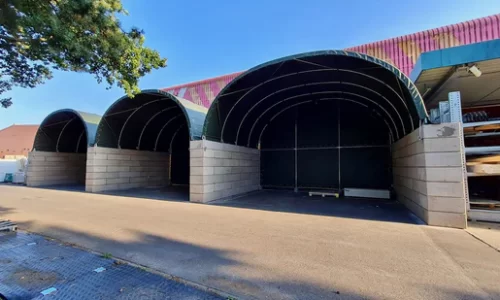What To Look For In A Workbench
Your workshop’s most important piece of equipment is the workbench. They are where you will do the bulk of your work. There are many factors to consider when choosing the right workbench for you.
Strength
You should consider the strength of your workbench depending on its purpose. It is important to choose something durable. You don’t want to buy something cheap and then have to replace it quickly. It’s worth spending a bit more to get a sturdy workbench that can withstand the punishment you give it every day. Commercial work often requires workbenches.
Environments
There are many areas in any workplace that can be used for different tasks. You will need to think about these areas, regardless of whether they are in a garage or distribution center. There are many workbenches that can be used for different tasks within your business. packing station is designed to prepare goods for dispatch. Industrial workstations can be used for specific tasks such as completing paperwork or computer usage. To meet your daily tasks, you may need several workbenches.
Space
Consider the tasks you will perform at the workbench, and the space that you need. Are you going to need tools and equipment at your workbench? Do you work with large items such as metal sheets or wood? You should have enough space for technicians in your workspace. However, you need to consider how much space the bench will take up in your workshop. Folding workbenches might be more appropriate for your needs if you have limited space. These can be stored away when they are not in use.
Storage
A lot of workbenches have integrated shelving or storage, which can be a great way to save space. Consider the tools and equipment you use regularly and look into a bench with storage options. This will make it easier to organize your workshop. You might also want to consider Work Bench kits that have louvre panels compatible with small part storage bins. These models are ideal for environments that require picking and packing.
Material
There are many materials that can be used to make workbenches. Each material has its pros and cons. Take a look at the following:
Top Material
The materials used for worktops will vary depending on the needs of each individual, but this is often the most important consideration when choosing materials for your workbench.
- Particleboard– This is a small piece of wood that has been bonded together under pressure. It is affordable and suitable for light purposes. It isn’t as strong as solid hardwood and won’t last as long as wood. Particleboard topped with laminate and melamine is easy to clean.
- Solid wood This is the strongest material you can purchase. Solid wood is resistant to heat, impact and marring and comes in thick maple. It will last many years.
- Plastic Laminate This is a durable, yet economical material that is also non-conductive. It is ideal for those who work with electric tools. They are often coated to prevent stains and scratches.
- Steel For heavy, sustained work, stainless workbenches are the best when it comes hard-wearing, durable worktop materials. Strong welds and reinforcement on the underside make this ideal for heavy work. Avoid using steel with electric appliances.
- Antistatic – Static electricity can cause damage to delicate electronic equipment. ESD workbenches are made from anti-static material that prevents static electricity from building up.
- Hardboard is a lower-cost form of wood core. It is made of high-density, highly compressed hardboard. This board is economical for medium-weight work and won’t crack or split as easily as particleboard.
Frame material
Most workbench frames are made from steel or wood and can be used for a variety of purposes.
- Wood– These frames are durable and hardwearing, and have thick, solid legs. They are ideal for permanent installation.
- Steel: The lower the gauge, the greater the material strength. Be sure to select the right gauge for the job.
- Angle iron frames These are no longer in fashion but they can still be used for their strength, which is comparable to steel.
- Resin These frames are strong and resistive to breaking, but they are lighter than steel or wood. They are therefore ideal for mobile workbenches.
Assembled, or build it yourself?
There are two options for workbenches: those that come assembled and those that you can build yourself. There are many factors that influence the choice.
- Delivered assembled This is a slightly more expensive option but it eliminates the need to do any self-assembly. You can also be certain that your workbenches will be built securely. This saves time and labor. You should verify the measurements before you start to make sure there is enough space for the workbench to pass through the doors and corridors to the workshop.
- You can build your own. This is a more affordable option, but it will require you to take time and follow the instructions exactly to protect your warranty. These can be great if you have limited space. They can fit through narrow doors and other tight spaces.
Can it be customized?
There are many workbenches available, but it is rare for a workbench to be used only once. Many workbenches can be used for many purposes over the years. Ready-made workbenches can be used for general purposes.
You should consider customizable STACK-IT Work bench if you have a particular requirement or think that the use of your workbench will change over time.
You have two options: A workbench can either be built-to order, which means that the manufacturer or retailer will customize it to your specifications. Another option is to order a model that you can customize over time.
Your requirements will determine which type of customization you choose. You have the option to be flexible over time while the latter allows you to build a workbench specifically for your work.
Hygiene
Workbenches can develop bacterial growth over time. This increases the chance of getting infected. Workshops are places that are more prone to microbial growth due to lack of airflow, clutter, and by-products from manufacturing.
You should choose a worktop material with antimicrobial properties to ensure hygiene. Our workbenches have antibacterial technology. This is a surface technology that renders materials inhospitable for bacteria, mould, and other microbes. This technology is integrated at the point-of-manufacture and provides constant protection against MRSA and other microorganisms. It is also effective against Streptococcus and Salmonella.


